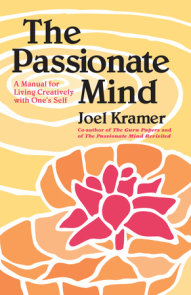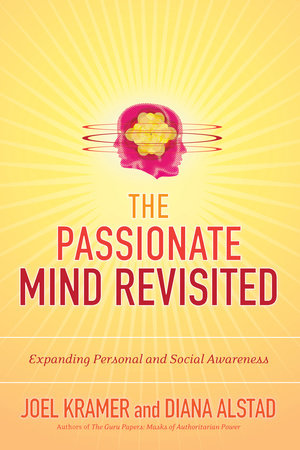

The Passionate Mind Revisited
By Joel Kramer and Diana Alstad
By Joel Kramer and Diana Alstad
By Joel Kramer and Diana Alstad
By Joel Kramer and Diana Alstad
Category: Meditation & Mindfulness | Philosophy | Self-Improvement & Inspiration
Category: Meditation & Mindfulness | Philosophy | Self-Improvement & Inspiration

-
$16.95
Jul 14, 2009 | ISBN 9781556438073
-
Jul 30, 2013 | ISBN 9781583948149
YOU MAY ALSO LIKE

Cosmic Comfort
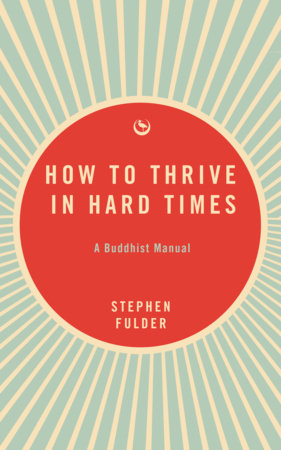
How to Thrive in Hard Times
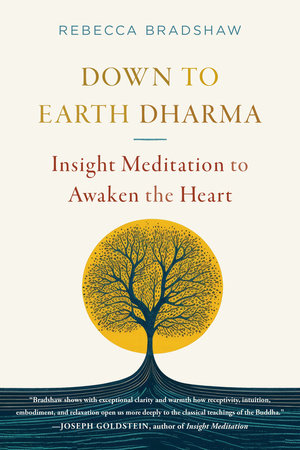
Down to Earth Dharma

The Official Sea of Thieves Coloring Book
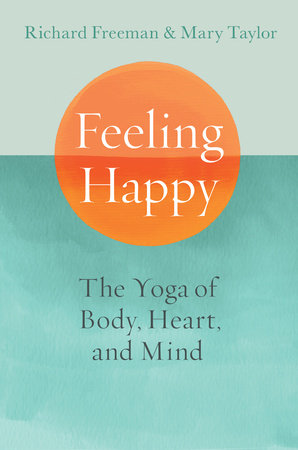
Feeling Happy

The Watkins Rider-Waite-Smith Tarot Coloring Book
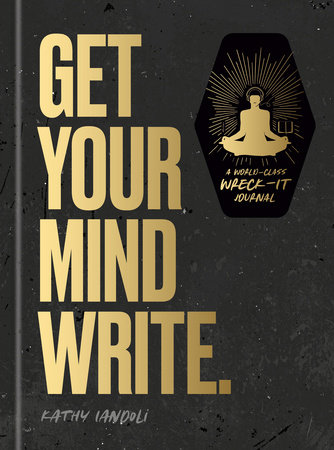
Get Your Mind Write.
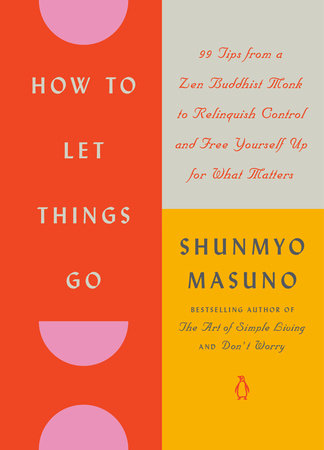
How to Let Things Go

My Travel Journal
Praise
“In this timely, brilliant, and original tour de force, Kramer and Alstad, two of the seminal thinkers of our time, have given us a remarkable gift: a hopeful, unsentimental analysis of both how we got here and where hope for a viable future lies. If you read one book this year, let it be The Passionate Mind Revisited. It will broaden your individual and social awareness and change your life.”
—Jeffrey B. Rubin, PhD, author of Psychotherapy and Buddhism
“Don’t go to the movies. Put down your magazine. Shut off your computer. Read this book. It will show you what is really happening now. Being able to understand how the world is changing and what that means to you and your children is the real news of today. Accessible and profound. Read it and weep—or clap with joy. This truly is our future and, more importantly, our choice.”
—Jeremy Tarcher, founder of Tarcher Books
“The Passionate Mind Revisited is a fearlessly rational engagement with subjects we all too often accept as beyond rational thought—emotion, spirituality, relationships, and life in a time of conflicting realities and an endangered planet. It’s a fine and important book, and deserves to be widely read.”
—Walter Truett Anderson, author of All Connected Now: Life in the First Global Civilization
“Whether The Passionate Mind Revisited is for you depends on your interest in philosophy, human behavior, epistemology, and personal development. This ambitious, broad-ranging book is by necessity abstract, but for philosophers, Diana Alstad and Joel Kramer are miraculously clear and lead the reader by meticulous steps to some surprising conclusions.”
—Diane Johnson, author of Le Divorce
“Nobody does a more masterful job of folding back the fabric of our individual, cultural, and human attachments and revealing hidden denials, hypocrisies, and paradoxes than Diana Alstad and Joel Kramer. They are among the very few who can open hidden doors to rooms in your house you never knew were there—to both delight and disturb. This book will change the way you look at things—perhaps everything. Are you courageous enough to risk that? Reading this book is a glimpse into what the human mind is capable of perceiving and the mindset of the evolved human mind in the next millennia.”
—Kevin W. Kelley, author of The Home Planet
“In 1974 The Passionate Mind took me on a journey into my deepest self; it made me dance in the dark. Now, in The Passionate Mind Revisited, the entire worlds—the cosmos in which that self resides—is explored. The investment many children of the ‘60s and ‘70s made in freeing ourselves is now turned toward a globe in need of freedom from hunger, poverty, and violence. The Passionate Mind Revisited is a critical tool for social, political, and ethical transformation.”
—Frances Kissling, former president of Catholics for Choice
“A welcome infusion of clarity, brilliance, and inspiration that will very likely blow your mind. This profound book is a philosophical, intellectual, and spiritual Rosetta Stone—not a glib compilation of simplistic answers but a critical frame of reference that challenges the way we think about the nature of thinking itself. The Passionate Mind Revisited is essential reading for anyone trying to get their bearings amid confusing and contradictory claims and ideas that have long been promoted about the meaning of self-awareness and social consciousness. If you intend to delve into any other discussion of the powerful social, religious, psychological, ecological, and ethical changes confronting current and future generations, read this book first or you may miss the crucial context that will help you make sense of it all.”
—Keith Harary, PhD, executive director of the Institute for Advanced Psychology and author of Who Do You Think You Are?
“The phrase ‘looking inward’ has become anathema to many social reformers who put their emphasis upon external action. In turn, this ‘knee-jerk’ activism has been criticized by those who advocate inner development. Diana Alstad and Joel Kramer believe that both approaches can occur concurrently and provide a framework for this process in this brilliant book. If the twenty-first century is not be the last gasp of humanity’s time on Earth, the ideas and practices articulated by these two innovators will deserve credit.”
—Stanley Krippner, PhD, professor of psychology, Saybrook Graduate School and coauthor of Haunted by Combat: Understanding PTSD in War Veterans
“A breakthrough in spiritual realism, pioneering in its confrontation of life’s perennial tough judgment calls, and courageous in its intolerance of the cryptoscientific pseudo-spiritual gloss, this book will meet you where you really live.”
—Jeremy Sherman, PhD, MPP, executive director of the Berkeley Consortium on Emergent Dynamics
“The Passionate Mind Revisited has afforded me deeper, clearer, more pragmatic approaches to my work and to the future of humanity and life on Earth. My worldview and experience of the spiritual dimensions of life are both more grounded and more expansive from the exposure to their thinking and exploration of their ideas. Much awaits you in exploring your own passionate mind! And the Earth needs our passion and clarity more than ever.”
—Rio de la Vista, former editor of Windstar, conservationist
“In times of transition and not knowing, visionary artists dance with the possibilities that they sense emerging for us. Diana Alstad and Joel Kramer have seen a magnificent potential for humanity and have written down their insights in an inspiring and practical way. I recommend their book as medicine for all who are curious about what might lie beyond the present confusion and challenges.”
—Marion Weber, founder of the Arts and Healing Network
“Nothing today is more critical than making sense of our times and what they ask of us. Diana Alstad and Joel Kramer bring important insight and integrity to this difficult task. Spiritual and scientific sacred cows get equally unsparing treatment. The Passionate Mind Revisited makes a valuable contribution at both a personal and a societal level.”
—Charles M. Johnston, MD, author of The Creative Imperative
“Diana Alstad and Joel Kramer are exciting critical thinkers for our times, who, as passionate individuals, offer us provocative insights to investigate and navigate our own terrain in ransitional times. The Passionate Mind Revisited is a classic reinvented for this dynamic historic moment.”
—Ganga White, author of Yoga Beyond Belief
“Kramer and Alstad argue with clarity and passion that the simplistic “be here now” mindset sweeping contemporary pop psychology tragically fails to account for how the past and the future are always part of how we construct any “now” and any “here.” I found myself cheering at their insistence that negating the future in the name of spiritual enlightenment amounts to an amputation of our intrinsic capacity to take future consequences into account—a task of vital importance at this crucial stage in our evolutionary adventure.”
—Keith Thompson, author of Leaving the Left
“It is clear that The Passionate Mind Revisited is a seminal book for our time. One of the core beliefs held by nation-states and most individuals is that “more is better.” What a wonderful gift we have been given to challenge our unexplored assumptions to help us shift to a world that can fulfill us all.”
—Wilford Welch, author of The Tactics of Hope
“The Passionate Mind Revisited is a promising re-visioning of age-old philosophical dilemmas in a contemporary setting with important social and political implications. The authors are poignantly aware of the effects that Eastern thought and practice have had on spiritually inclined individuals in America over the past half-century, and they challenge head-on many assumptions flowing from their own and others’ earlier teachings. Their systematic demonstration leads to the stirring conclusion that a spiritually aware, caring life has to be lived future-oriented and in time-not in some timeless realm. By illuminating the roles of thought and diversity in a life of spiritual awareness, the authors’ book would re-orient and rejuvenate spiritual work, bringing it back into the world of time to become more effective and socially relevant.”
—James Millikan, PhD, former professor of philosophy at Yale and University of Florida
“In this book, Diana Alstad and Joel Kramer have combined more than thirty years of writing, experience, and thinking to construct for the reader a unique lens with which we might examine our worldviews, ideologies, beliefs, fears, and hang-ups. We see more clearly the consequences of our collective failure to free ourselves from the spiritual and intellectual compulsions that have led us to the brink of planetary doom. The coauthors urge all of us, if we are truly serious about planetary survival, to continue the struggle to engage collectively in the evolution of our consciousness. I commend them for this book, a superb achievement.”
—Charles H. Jones, professor emeritus of law, Rutgers University School of Law
“The Passionate Mind Revisited is an excellent resource for expanding personal and social awareness. Diana Alstad and Joel Kramer integrate many cross-cultural and interdisciplinary ideas to illustrate how we can continue to grow, create, and expand during times of uncertainty and open to possibilities not considered before.”
—Angeles Arrien, PhD, author of award-winning Signs of Life
“[The Passionate Mind Revisited] reads like a survival guide for the new world order—a manual on how to live consciously and well in a world that seems to be collapsing around us…The authors urge us to ask ourselves life’s most important questions. But this book is not just a call to awareness; it is also a well-reasoned exploration of the human condition. Kramer and Alstad show us that the truth lies within us and that to know it, we must not only be open to it but also listening for it. At the heart of the authors’ message is that the changes so desperately needed in today’s world must necessarily begin within each of us.”
—Yoga Journal
“[The Passionate Mind Revisited is] a provocative challenge to existing worldviews and a celebration of ‘conscious social evolution.’”
—iShift
“This brilliant deconstruction of failed religions, social structures and rigid fantasies of ideal human relationships will give you a refreshing approach to a both/and perspective that will help you become a trailblazer, aware and freed from the adolescent stage of human evolution… The authors, Diana Alstad and Joel Kramer, show us ways to fluidly navigate the different dimensions of the human condition and come through it with our awareness, critical thinking and compassionate hearts intact and thriving.”
—MagickTarot.com
“The Passionate Mind Revisited takes readers on a liberating inner journey into the workings of their mind that can transform the way people look at themselves and the world… In exploring what it is to be a human social animal, The Passionate Mind Revisited offers fresh vantage points on life’s core issues: the nature of thought, authority and belief, pleasure and pain, desire and fear, identity, love and care, freedom, power, gender, time, meditation, violence, and evolution. By demonstrating how to inwardly see and break through one’s conditioning, the authors delve deeply into the nature and processes of the mind… This book, through its discussion and methodology, fosters curiosity and truth-seeking. Kramer and Alstad offer new insights on personal and global issues that can facilitate a necessary shift to conscious social evolution.
—Gaia Media
Table Of Contents
Introduction
1. Authority
2. Belief (Commentary: Being Better Believers)
3. Pleasure & Desire (Commentary: Pleasure & Power)
4. Fear
5. Freedom (Commentary: Whose Life Is Sacred?)
6. Images (Commentary: From Images to Identity)
7. Love (Commentary: Love and Care)
8. Time (Commentary: It’s About Time)
9. Meditation (Commentary: Control Through Surrender)
10. Evolution (Commentary: Intelligence Without Design)
Chapter Commentary Descriptions:
2. Belief’s “Being Better Believers” investigates the relation between beliefs and worldviews, values, identity, violence, certainty, and relativism.
3. Pleasure & Desire’s “Pleasure & Power” looks at the relation of our genetic conditioning to manipulation, consumerism, predation, and the two faces of power.
4. Freedom’s “Whose Life is Sacred?” elucidates the two-gendered, intertwined, out-of-control explosions fueling each other: overpopulation in the female sphere of reproduction; and destruction (violence and short-sighted over-production) in the male sphere of production and killing.
6. Images’ “From Images to Identity” shows how self-images can harden into narrow, rigid identities that fragment the world.
7. Love’s “Love & Care” distinguishes between the two, showing care’s uniqueness and special importance for the social arena.
8. Time’s “It’s About Time” reveals quandaries in the ideal of "being in the now" by examining time within different worldviews, and presenting the authors’ worldview and view of time. It offers a rigorous critique of the “Be here now,” “power of now” ideal and mentality, showing how destructive it can be for humanity’s survival. The past (causality) and especially the future (consequences) need to be taken more into account—not less.
9. Meditation’s “Control Through Surrender” reveals how “spiritual” practices can be their own form of mental conditioning, and distinguishes between mechanical techniques and a meditative frame of mind.
10. Evolution’s “Intelligence Without Design” approaches the “intelligent design vs. scientific materialism” controversy over evolution from a totally different perspective, by offering a more likely worldview than either.
21 Books You’ve Been Meaning to Read
Just for joining you’ll get personalized recommendations on your dashboard daily and features only for members.
Find Out More Join Now Sign In








